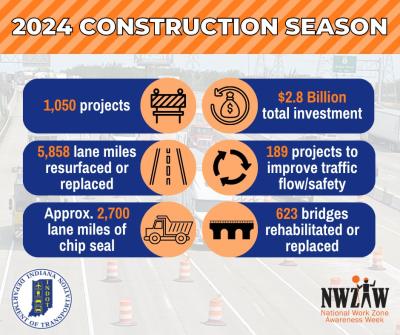A bill passed by the Florida Legislature could provide a spark to the state’s stagnant construction industry.
House Bill 527, a brownfields cleanup and redevelopment bill, provides several incentives and program enhancements for restoring brownfield properties. Legislators hope the bill will provide a range of economic, environmental and public health benefits to the state and to communities where brownfield sites are located.
According to the Florida Brownfields Association (FBA), a non-profit organization founded in 2002, brownfields are “real property, the expansion, redevelopment or reuse of which may be complicated by actual or perceived environmental contamination.”
Established in 1997, the Florida Brownfields Program encourages developers to voluntarily clean up and redevelop brownfield sites through a variety of regulatory and financial incentives. Since 1997, more than 160 brownfield areas have been designated by local governments in Florida and more than 100 voluntary brownfield cleanup agreements have been executed.
This latest bill is just another enhancement to the overall program to provide additional incentives, said FBA president Roger Register, who also is a director with the TBE Group, a full service civil environmental consulting firm.
Gov. Charlie Crist had not yet signed the bill into law by press time, but Register fully expected him to do so.
“There’s no indication he wouldn’t sign it,” Register said. “We’re still following it very closely to make sure it’s either signed or passes without his signature.”
Once the legislation, which was sponsored by State Rep. Trudi Williams, chair of the House Committee on Environmental Protection, and State Sen. Lee Constantine, becomes law, several key provisions will go into effect:
• It enhances state tax credit incentives to encourage the cleanup and redevelopment of certain abandoned former landfills or dump sites in Florida, which are environmental and economic drains. The bill provides incentives to encourage the removal, correct management and reuse of solid waste materials from these former solid waste disposal sites as part of their cleanup and redevelopment.
• Adds a new state tax credit incentive to encourage the construction of new healthcare facilities on brownfield sites to serve the medical needs of local communities.
• Clarifies and improves certain brownfield designation procedures for parties participating in brownfield designations, cleanups and redevelopment.
• Improves a range of state tax credit application procedures to assist parties in accessing financial incentives. The improvements allow more time for submission and review of applications each year, giving the Florida Department of Environmental Protection more opportunity to put together complete tax credit applications.
Register said the bill may create an economic stimulus for communities with brownfield sites by generating ad valorem revenue, reducing environmental impacts on groundwater and land and stimulating job growth.
“It has a community health component where if you have a mixed-use development or some other type of development that’s going to have a health component, you can now qualify for an additional incentive, an additional 25 percent for the cleanup costs of a contaminated brownfield site. It opens the market for developers that would have an interest in providing that healthcare component,” Register said.
That’s good news for Bill Spann, president/CEO of the Associated General Contractors of Greater Florida, who expects to see a nice jump in healthcare-related construction in 2008.
“I’ve been talking to our chief economist and construction spending — at least commercial — is expected to grow between 4 and 8 percent and it’s supposed to be led by a couple of key subcategories,” Spann said.
“Healthcare is one of the four growth areas [power, energy and higher education are the others] with commercial construction in the state and in the nation predicted to grow in 2008.”
Spann said the brownfields bill “is in tune with that and will help us even further.”
According to the FBA, the brownfields program has directly created 8,595 new jobs in Florida, indirectly created another 5,999 jobs and sparked approximately $883.7 million in capital investment in designated brownfield areas.
“The Legislature’s passage of this bill provides another set of important incentives, tools and brownfield program enhancements to encourage the voluntary cleanup and redevelopment of brownfields and environmentally impaired sites throughout the state,” said Jason Lichtstein, FBA board member and legislative committee co-chair. “This is a true win-win for all of those interested in the restoration of brownfields in Florida.”
Register said the bill might encourage developers to take a second look at properties they rejected previously.
“From a construction standpoint, just being aware of the various incentives for brownfields that are out there [may encourage developers] to look for sites that would meet the qualifications or definitions for a brownfield site,” Register said. “There may be properties that are below market value and there is truly an intrinsic value to these brownfield properties.”
While Register expects the bill to trigger a bit of an economic boost, he thinks it will have a major impact on brownfield sites in urban settings.
“It is also geared toward infill development,” Register said. “A lot of times these properties are in the urban core areas and people have not considered them for redevelopment because of the stigma of environmental contamination. This bill, along with its predecessors, allows for an incentive to go back in and redevelop these properties.”
While the bill certainly has the attention of Florida contractors and developers, Register said its impact extends far beyond state borders.
“I’ve talked to a number of developers from the Midwest,” Register said. “There’s a couple of developers from Michigan who are coming to Florida for redevelopment at brownfield sites because of the way the economy is in Michigan. They see Florida as a place for their redevelopment projects and they’re identifying sites due to the incentives out there.”
Register sees the bill as an opportunity to not only clean up contaminated sites, but to give work to people who need work and import folks to do work, giving the economy a boost.
“We see it that way for sure,” Register said. “Besides the sales tax incentive for building materials used on a brownfield site, there’s a job bonus refund for each new job created within a designated brownfield area. When you look at the various incentives out there for the brownfield program, it can bring quite a bit to urban infill renewal or even to rural areas in the state.”
The AGC’s Spann puts it a little more succinctly: “We’re in favor of anything that helps our members get more work.” CEG
Today's top stories














